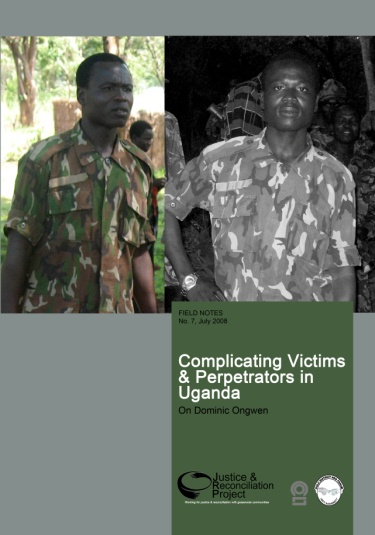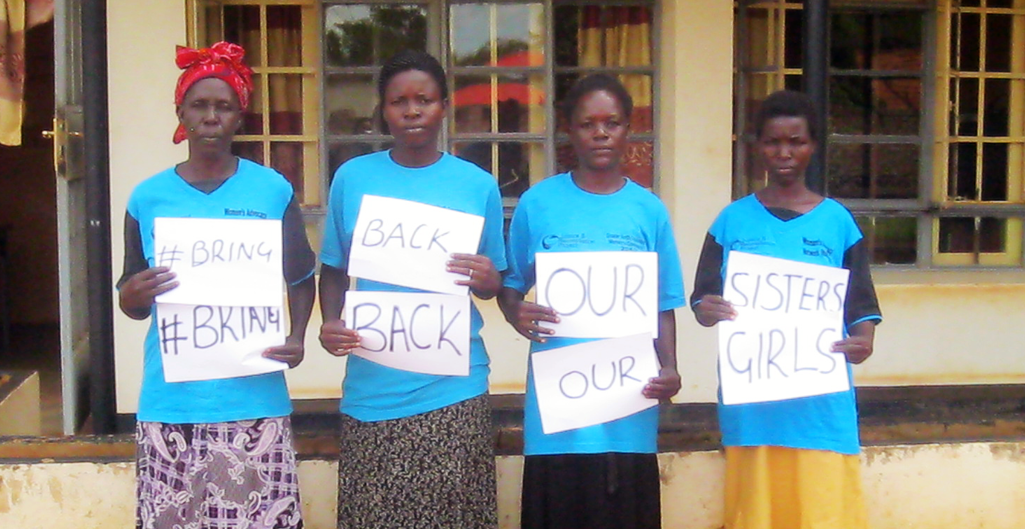
In 2008, the Justice and Reconciliation Project conducted research into the life of Lord’s Resistance Army commander, Dominic Ongwen. This documentation followed his and four other top LRA commander’s indictments by the International Criminal Court for crimes against humanity and war crimes. The Ongwen case study, that of a person abducted when he was “too little to walk” and who eventually rose to a senior rank in the rebel army, illustrated the complexities of notions of ‘justice’ and ‘victimhood’ in the LRA-Government of Uganda conflict. In particular, it drew attention to the need for justice processes that handle cases involving individuals who carry the dual victim-perpetrator identity, that promote sustainable peace and which are sensitive to the needs of communities affected by the war. Six years after JRP’s report, there is still a need to reiterate the need for this.
Complex identities
Having been abducted around the age of nine, Dominic Ongwen’s victimhood is a strong factor that should be taken into consideration during his trial and any future justice mechanism. He is just one example of one of many who are both victims of abduction and the state’s failure to protect its citizens, and who were systematically indoctrinated into the LRA and other rebel groups in Uganda. Therefore, strategies appropriate to these complex identities should be implemented, such as local leaders dialoguing with and sensitising communities on them, affected persons being consulted, and future investigations by the Court considering the historical context in which these crimes are committed in order to identify complex political victims.
Reparations
JRP’s work in northern Uganda has consistently revealed that conflict-affected communities’ concept of justice relate to their need for support to help rebuild their lives after decades of war. Many of these communities have been waiting for decades for their challenges to be addressed and often cite reparations in the form of compensation to victims of mass atrocities and their families, healthcare, education and livelihood support as their most pressing needs. It is vital, therefore, that any justice process involving Ongwen or any other matter related to the northern Ugandan conflict promotes the provision of reparations.
Community participation
It is also important that a justice process, such as Ongwen’s trial, should be as participatory as possible and ensure the rights of victims to have their interests heard. This means that witnesses should receive adequate protection, affected community views should be solicited and formal proceedings should be as expeditious as possible. Outreach by the Court is also essential to keep communities informed about the ongoing processes and to build legitimacy and understanding of what is going on. A high level of participation in this vein would contribute to a sense of ownership of the process by northern Ugandan communities
Gender justice
Any sort of accountability process should also accommodate the unique needs of victims that belong to vulnerable groups, such as women and children. Female victims, for example, often face health complications from combat and sexual and gender-based violence. In addition, they also struggle with providing education for themselves and are unable to support the children they bore during conflict. Any justice process that comes to bear should take into account the gaps that already exist in addressing this. It should, for instance, properly investigate crimes involving vulnerable groups, level charges that reflect SGBV and ensure special reparations for victims of SGBV crimes. A trial, in particular, should make provisions for victims to testify by providing adequate psychosocial support to them and by protecting their identities.
Complementary TJ
While attention at the moment is naturally focused on formal court processes, other transitional justice processes should not be forgotten. Processes such as memorialisation, widespread reparations and truth-telling are also crucial in addressing past injustices that have been levelled towards communities in northern Uganda. The work of the Justice and Reconciliation Project has continually emphasised the need for a comprehensive transitional justice policy, based on views garnered from conflict-affected communities, which the Government of Uganda continues to work on. Both these efforts and the needs of the communities affected by conflict should not be forgotten in the midst of the Ongwen case.






